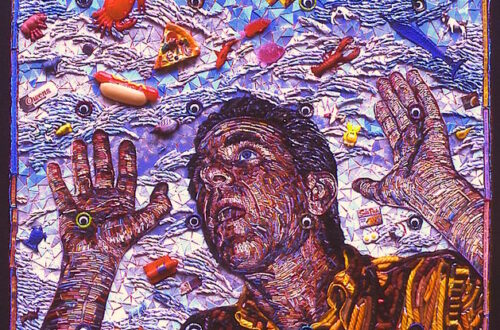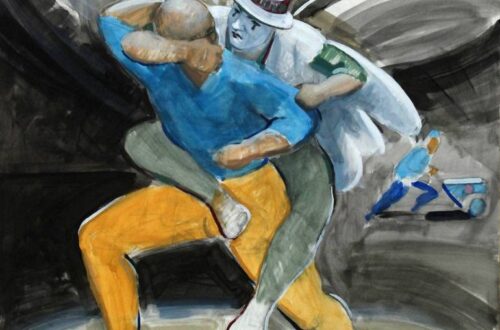-
John 2 – Clearing The Temple Court
What a difference after a few days at home between the quiet miracle of turning water into wine at the small town wedding and the family coming once again to Jerusalem to observe Passover. We know this was a regular event for his family as Luke tells us they came every year. But this is an entirely different scene from Jesus as a young boy in the Temple. Instead of sitting in his Father’s house among the teachers listening to them and asking questions he is clearing the place out, overturning tables and driving out animals with a whip. I’m sure no one expected this from him. I had a…
-
The Wedding at Cana: John 2
The book of John is organized around seven signs. The Wedding at Cana is the first. Nowhere in his description of these signs does John use the word for miracle. The other Gospels are filled with miracles one after another but not John. Every supernatural event has a purpose or a teaching whereas miracles in the other Gospels may not. Every one of the seven signs in John – except this first one – are followed by teaching about the larger meaning of the sign. That’s not the case in the other Gospels. Jesus almost scatters miracles like seed in the course of his ministry but here each event is…
-
John 1:1-18
The Scottish preacher Andrew MacLaren said this is the most profound page in the entire New Testament – and he is right. It is also the most controversial and the source of most Christian heresies in the early church. What you think about this one page pretty much defines what you believe about Jesus, God, and the Gospel. That is why it is so important not to read it as an isolated page but as part of the whole of Scripture. It is the same Jesus as in Matthew, Mark and Luke but intended for a different audience. 100 years after the death of Christ the Gospel had migrated from…
-
Micah 7
Normally, we think of a prophet as calling people to repentance to avoid the judgment of God. But that is not Micah’s message. The people are beyond repenting. All that awaits them is punishment and exile. They have become fully corrupt – but corrupt in a particular way. Micah is not calling them out so much for idolatry as he is for religion with no reality. Idolatry is the worship of other gods. Corruption is the false worship of God. It is the twisting of religion into what you want it to be. It is inserting a lie into what we have taken to be true. Idolatry is an overt…
-
Micah 2
Micah was a prophet from the Southern Kingdom of Judah and a contemporary of Isaiah and Hosea. He singles out Samaria and Jerusalem, the capital cities of the northern and southern kingdoms, and the unique centers of influence for their nations. These would be Washington, Los Angeles and New York today. He specifically targets the upper crust, the intelligentsia, and the cultural elite of these cities. Micah calls both nations’ religious leaders false prophets. As you would expect,they give Micah the same treatment that Amos and Jeremiah received: “Do not prophesy about these things; disgrace will not overtake us.” The religious leaders were peddling the worst sort of false comforts…
-
Hosea 11-12
1. Read Hosea 11:1-4 When Israel was a child, I loved him, And out of Egypt I called My son. I taught Ephraim to walk, Taking them by their arms; But they did not know that I healed them. I drew them with gentle cords, With bands of love, And I was to them as those who take the yoke from their neck. I stooped and fed them. It is difficult to come to grips with all the different images of God in Scripture. Even though people can say it is like a painting or a tapestry that can only be expressed in a thousand different strokes or threads, it…
-
Hosea 3-7
We talked last week about the context of Hosea. What were his times? They were times of great prosperity for Israel. The kings had taken advantage of the temporary weakness of the nations around them not only to expand their economy but to increase their borders. It was a moment of peace – not through treaties or diplomacy but due to the absence of threats from natural enemies and those who had bothered them for centuries – Assyria, Babylon, the Edomites and Midianites. Those nations were, for the moment, struggling with their own internal disputes and problems. It was an ideal time for Israel. It was a time that people…
-
Amos 8-9
1. “The days are coming,” declares the Sovereign Lord, “when I will send a famine through the land — not a famine of food or a thirst for water, but a famine of hearing the words of the Lord. People will stagger from sea to sea and wander from north to east, searching for the word of the Lord, but they will not find it.” A famine is a terrible thing and they were dreaded by the people. It was not just a shortage but it meant a change of life lasting for years for everyone. A famine forced Jacob and his sons to go to Egypt in the first…
-
Amos 3-5
Have you been on trips through areas where every few miles there is a place marked “scenic view” or “historical landmark”? You want to stop but you don’t and always say, “The next time I make this drive I am going to allow some margin for pulling off and seeing what is there.” But we don’t. That is how I feel about these passages. I would love to stop along the way but there is too much to cover. Maybe the next time we do Amos we can take another route. This morning we are driving from Amos 3 all the way to Amos 5 so we need to get…
-
Amos 1-2
This morning we begin a four week study in the book of Amos – one of the twelve minor prophets. Why do we call them the minor prophets? Is it because they are less important or seen as the second team supporting Jeremiah, Isaiah, Daniel and Ezekiel? No, they were first called the minor prophets in the 5th century by St. Augustine and the designation has remained. Why did he call them the minor prophets? Because they were shorter in length and had more specific themes than the major prophets. There is nothing minor about them and many of the most famous quotes and illustrations we know today are from…


